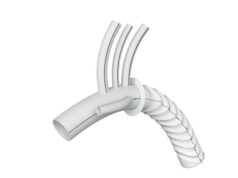 So, what is budget neutrality and how does it affect physician payment? The Medicare Physician Fee Schedule (PFS) is a resource-based relative value scale (RVS) payment system, where relative value units (RVUs) are based on resource costs associated with physician work, practice expense and malpractice. The PFS has a budget neutrality requirement that has been in place since 1992. Budget neutrality is the federal mandate that requires an upward adjustment in expenditures in one area of the Medicare program to be offset by a downward adjustment in other areas. In the simplest terms, budget neutrality requires that the Centers for Medicare & Medicaid Services (CMS) make an overarching negative adjustment to the PFS to counterbalance any increases in PFS resources that CMS implements. This process occurs by implementing changes to the conversion factor (CF). The CF, a national dollar multiplier, is used to “convert” geographically adjusted Relative Value Units (RVU) to determine the Medicare-allowed payment amount for a particular physician service.
So, what is budget neutrality and how does it affect physician payment? The Medicare Physician Fee Schedule (PFS) is a resource-based relative value scale (RVS) payment system, where relative value units (RVUs) are based on resource costs associated with physician work, practice expense and malpractice. The PFS has a budget neutrality requirement that has been in place since 1992. Budget neutrality is the federal mandate that requires an upward adjustment in expenditures in one area of the Medicare program to be offset by a downward adjustment in other areas. In the simplest terms, budget neutrality requires that the Centers for Medicare & Medicaid Services (CMS) make an overarching negative adjustment to the PFS to counterbalance any increases in PFS resources that CMS implements. This process occurs by implementing changes to the conversion factor (CF). The CF, a national dollar multiplier, is used to “convert” geographically adjusted Relative Value Units (RVU) to determine the Medicare-allowed payment amount for a particular physician service.
A significant budget neutrality adjustment went into effect in 2021 as a result of the revaluation of office/outpatient evaluation and management (E/M) codes within the PFS. However, coordinated advocacy efforts across the provider community resulted in Congress advancing legislation to mitigate the impact of the budget neutrality adjustment. They have taken similar action in each of the following years. Efforts to reverse the 2024 reduction in the PFS are still underway.
How are codes valued?
The American Medical Association (AMA) Relative Value Scale Update Committee (RUC) is an expert panel of physicians and healthcare professionals that makes recommendations to the federal government on the resources required to provide medical services. Medical services are described by Current Procedural Terminology (CPT) codes. CPT codes offer doctors and healthcare professionals a uniform language for coding medical services and procedures to streamline reporting, and increase accuracy and efficiency. CMS reviews RUC recommendations and determines the RVUs for CPT codes.
The AMA CPT panel meets three times per year in sequence with the RUC meetings. The CPT panel debates and approves new procedural codes, revises existing codes, and deletes obsolete ones. Typically, a code that has been revised or newly approved by the CPT panel will then be reviewed at the next RUC meeting for new or revised valuation.
Medical specialty societies such as the SVS—with 20% AMA membership and recognized by the AMA House of Delegates—nominate a specialty society member to advocate on behalf of their membership for appropriate values for medical services they provide.
These “RUC Advisors” present survey data to the AMA RUC panel. This panel is made up of physicians and other healthcare professionals.
There are 29 seats on the RUC. The majority of seats are filled by delegates from medical specialty societies. The RUC meets three times per year. Historically, greater than 90% of RUC recommendations were adopted by CMS, although that percentage fluctuates.
The survey data that the advisors present to the AMA RUC panel come from RUC surveys that the specialty societies disperse to the membership. The panel determines the questions and timeline for completion. The surveys include questions related to physician time, intensity, typical patients and pre-/postoperative care. The specialty society’s RUC advisor and coding committee review the data and prepare recommendations for the RUC panel.
Crucial role
Budget neutrality plays a critical role in these discussions; increasing the value of a particular code will result in a corresponding across-the-board decrease in reimbursement for all other procedures.
The exploration of topics such as budget neutrality and the valuation of CPT codes explains the crucial role these factors play in shaping healthcare reimbursement policies.
By highlighting how these processes occur, we hope to equip early-career vascular surgeons with the knowledge and insight necessary to actively engage in advocacy efforts and thereby contribute to the evolution of healthcare policies that directly impact their practice.
Natalie D. Sridharan, MD, and Nicolas J. Mouawad, MD, are both graduates of the SVS Advocacy Leadership Program.












